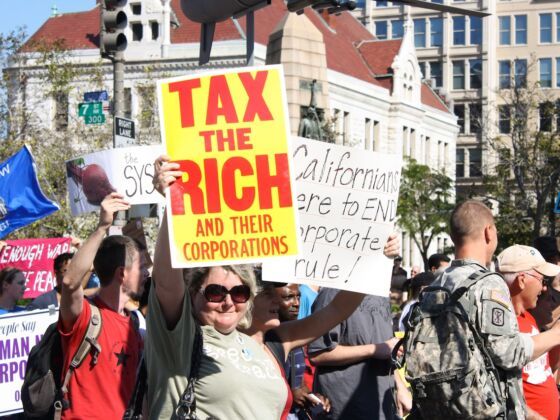SLOGANS WERE EVERYWHERE in the winter of 2011. A person couldn’t turn on the television, get online or, in some cases, go downtown without hearing, “We ARE the 99%”, or “Protect Medicare — NOT Billionaires,” and “Banks got bailed out; we got sold out.” February marked the fifth anniversary of the eviction of the last of the “Occupy” encampments — OccupyDC in Washington DC’s McPherson Square.
But the movement didn’t fizzle out. Although its encampments were broken up in a coordinated effort by federal agencies working through local law enforcement, the Occupy presence has grown and has become the largest threat to the status quo in recent times. There are progressive movements today that had their roots in Occupy. Some even influence the presidential campaign.
